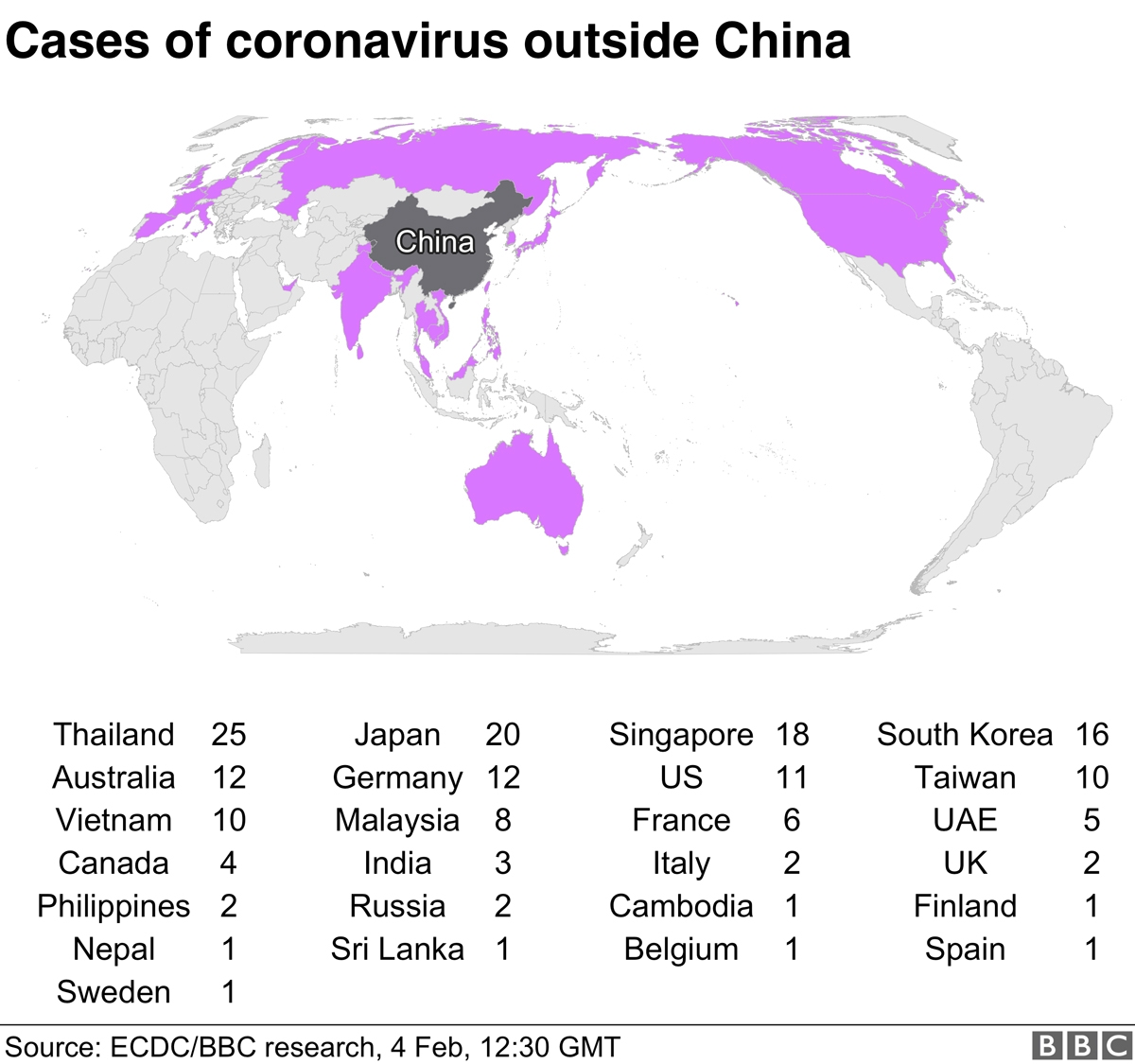
Given what we know, China’s response to the Coronavirus is commendable
The myths and truths about coronavirus
There is no doubt that Novel Coronavirus (2019-nCoV) or the ‘Coronavirus’ is a global emergency. On January 30, the World Health Organization (WHO) declared the 2019-nCov epidemic a “public health emergency of international concern (PHEIC)” — as it did with swine flu and Ebola. However, Sylvie Briand, head of WHO's Global Infectious Hazard Preparedness division, said the situation "currently" was not a pandemic.
A pandemic is defined as “the worldwide spread of a new disease.” The illness spreads around the world and typically affects many people across a wide area. So far, the ‘coronavirus’ doesn’t meet that definition. Briand says WHO declared coronavirus a PHEIC in order to provide extra support to lower and middle-income countries with weaker health systems that might not be able to spot or isolate cases of coronavirus.
She acknowledged the rapid spread of transmission in Hubei, China but also praised the effectiveness of Chinese authorities in responding to the outbreak and the hope that the world could ‘get rid of this virus’.
WHO pointed out that many of the new cases being reported are as a result of China improving its ability to find infected people since the outbreak started.
China's National Health Commission has warned the coronavirus’s transmission ability is getting stronger, but they were unclear on the risks posed by mutations of the virus.
To that end, the Chinese government has taken and continues to take extraordinary control and prevention measures in the interest of public health and safety to combat the coronavirus outbreak. It is hoped these measures will contain and stop the outbreak in China and abroad.
Besides regular updates by WHO, the Chinese are also communicating their efforts to the international community.
The Shanghai Institutes for International Studies (SIIS) is at the forefront of the Chinese response to the coronavirus. Founded in 1960, (SIIS) is a government-affiliated, high-calibre think tank dedicated to informing government decision-making by conducting policy-oriented studies in world politics, economics, foreign policy, and international security. SIIS maintains intensive and extensive exchanges and cooperation with research institutions at home and abroad, with 106 full-time research fellows and staff, including 60 per cent senior fellows, seven institutes and six research centers.
A day after, the WHO declared the coronavirus a “public health emergency of international concern (PHEIC), the SIIS released a report titled ‘Coronavirus in China-Process and Prospect’. Chen Dongxiao, the president of the SIIS highlighted several key points about the coronavirus in the report including:
- The first infection was diagnosed in Wuhan in December 2019 and the novel coronavirus has been spreading at a speed even beyond the expectation of medical experts.
- In response, the Chinese government mandated a quarantine of the Wuhan city on January 23, 2020.
- 31 provinces and municipalities, including Beijing and Shanghai, have also taken measures on first-level response to this major public health emergency.
- The actions of the Chinese government and people are key to the global campaign against this epidemic.
- SIIS believes that despite the daunting tasks faced by China, strong measures as quarantine of key areas are still the most effective means to contain the epidemic; otherwise, the whole nation and even the world would be subject to greater public health risks.
- Efforts by the central government, local governments and the whole society along with the nationwide emergency-management system is beginning to take full effect.
- The 2019-nCov epidemic will have a negative impact on China’s economy in the short run), which will have a spillover effect on the world economy.
- SIIS believe that in the mid- and long term, China’s economy will show resilience
- SIIS believe that with the support of the international community, the Chinese government and people will ultimately conquer the epidemic and China’s economy will remain robust.
- SIIS researchers pointed out that in the globalized era, such epidemics as the coronavirus have become common threats for humanity that demand joint efforts from the whole international community.
Chinese leaders, SIIS researchers and WHO virus experts agree that the only option to prevent people who have become infected from spreading the virus to others is to limit people's movement, encourage hand-washing and other forms of infection control and treat patients in isolation with health care workers wearing protective gear. Combined with the continuing efforts to identify people whom patients have come into contact with to see if they have the virus, these measures will help defeat the virus.
The response of China is commendable given the impact on its people and economy. China has done something unprecedented anywhere in the world — by effectively putting entire cities into quarantine.
The central province of Hubei, where nearly all deaths have occurred, is in a state of lockdown. The province of 60-million people is home to Wuhan, the heart of the outbreak. The city has effectively been sealed off and China has put numerous transport restrictions in place to curb the spread of the virus. Mass gatherings have been mostly banned and popular tourism sites, including part of the Great Wall, have been closed. Chinese authorities have also banned the sale of wildlife, a possible source of the infection. In a nod to Chinese ingenuity, in Wuhan which is at the centre of the outbreak, two new hospitals have been built in less than a month, with beds for a total of 2,300 people.
Chen Dongxiao's also made a point of quoting WHO Director-General Tedros Adhanom Ghebreyesuson in his report. At a press conference on January 30th Ghebreyesuson said, “The only way we will defeat this outbreak is for all countries to work together in a spirit of solidarity and cooperation. We are all in this together, and we can only stop it together. . . .This is the time for facts, not fear. This is the time for science, not rumors. This is the time for solidarity, not stigma.”
The frustration of the Chinese government with the response of some countries, especially the United States, is not surprising. Foreign Ministry spokesperson Hua Chunying rebuked the U.S.’s response to the outbreak, claiming they had “overreacted.” To date WHO facts and data support this view. “Most countries appreciate and support China's efforts to fight against the novel coronavirus, and we understand and respect them when they adopt or enhance quarantine measures at border entry,” Hua said. “But in the meantime, some countries, the U.S. in particular, have inappropriately overreacted.” On February 2, the United States began implementing strict travel restrictions in response to the virus, including temporarily denying entry to foreign nationals who visited China in the past 14 days. Hua further reproached the U.S., saying they had not “provided any substantive assistance” to China, but were “the first to evacuate personnel . . . . first to suggest partial withdrawal of its embassy staff and the first to impose a travel ban on Chinese travelers.” Hua said that China hopes that countries will make “reasonable, calm and science-based judgments” in response to the coronavirus, adding that, “What the United States has done could only create and spread fear.”
Hua’s comments were in line with Sylvie Briand, head of WHO's Global Infectious Hazard Preparedness division who has also stressed the importance of tackling unfounded rumours. “When you deal with an epidemic, you rapidly see that in addition to the epidemic of diseases, we often have an epidemic of information. And this is what we call 'infodemic'," she said. “And so, we have realized over time that this infodemic could be really an obstacle for good response and hamper effective implementation of counter-measures."
Hua singled out Canada in the press conference, praising the Canadian government for not enacting a travel ban like the U.S. “Canada believes the ban of entry has no basis, which is a sharp contrast for the U.S. behaviour,” Hua said. In a press conference Monday February 3, Canadian Health Minister Patty Hajdu said Canada' s decision to avoid a travel ban is due to lack of “evidence to support that closing all the borders is necessarily the right way to go.” “Certainly we know that the evidence suggests actually the opposite — that in fact by closing down the borders it’s much harder to detect where someone is coming from,” Hajdu said, adding that an “open and honest” transaction allows for a much more detailed screening process.So far, in Canada there have been four confirmed cases of the Wuhan coronavirus.
Prime Minister Justin Trudeau is warning against a rise of racism towards the Chinese community as the coronavirus continues to worry some Canadians. At a Lunar New Year event in Toronto last Saturday, Trudeau said anti-Chinese sentiments are not welcome in Canada. “Let me be clear. There is no place in our country for discrimination driven by fear or misinformation,” he said. “This is not something Canadians will ever stand for.” Trudeau’s views were echoed by Opposition Conservative MP, Michelle Rempel Garner, who made a statement in the House of Commons about the need for Canadians to confront the “normalization” of xenophobic attitudes toward people of Asian descent due to the novel coronavirus outbreak. “At a time when many Chinese Canadians are struggling with deep concerns for the welfare of friends and family in China, we must stand against the normalization of xenophobic attitudes against people of Asian descent,” Rempel Garner said. “They are our brothers and sisters and they deserve nothing other than support, compassion, and understanding.” Rempel Garner’s call for everyone to stand in solidarity with Chinese Canadians yielded a standing ovation.

Coronavirus Crisis Statistics & Information:
- According to Ghebreyesus most of those that have died as a result of the coronavirus have had underlying health conditions — such as hypertension, diabetes or cardiovascular disease — that weakened their immune systems.
- A total of 362 people have died, nearly all in Hubei province and its capital Wuhan.
- The number of China coronavirus cases was at least 17,205 as of Feb. 2. While the increase in the number of China's virus cases continue to climb — 2,829 on Sunday — but the daily percentage gain in coronavirus cases is slowing. It was 16.4 per cent on Sunday, vs. 18 per cent, 17.9 per cent, 20.4 per cent, 22.5 per cent, 24.2 per cent and 39.2 per cent in the prior several days.
- Tedros Adhanom, Director General of the World Health Organization (WHO) tweeted on February 5th that 99 per cent of the cases are in China & 97 per cent of deaths are in Hubei province. This is still first and foremost an emergency for China.
- The American Association for the Advancement of Science (AAAS) magazine Science news reports that several groups started working on a vaccine for 2019-nCoV shortly after Chinese scientists shared the virus’s genetic sequence in an online public database on January 10.
- Three of these groups are funded by Coalition for Epidemic Preparedness Innovations (CEPI), a nonprofit formed in 2017 to fund vaccine development for emerging infectious diseases.
- Inovio Pharmaceuticals Inc. and Moderna Inc. both say they will have a vaccine ready for testing in animals in one month. Moderna, which is working with the U.S. National Institute of Allergy and Infectious Diseases, estimates that it could have a vaccine ready for a phase one clinical trial in people in three months.









